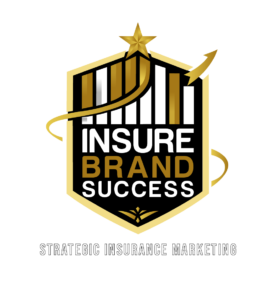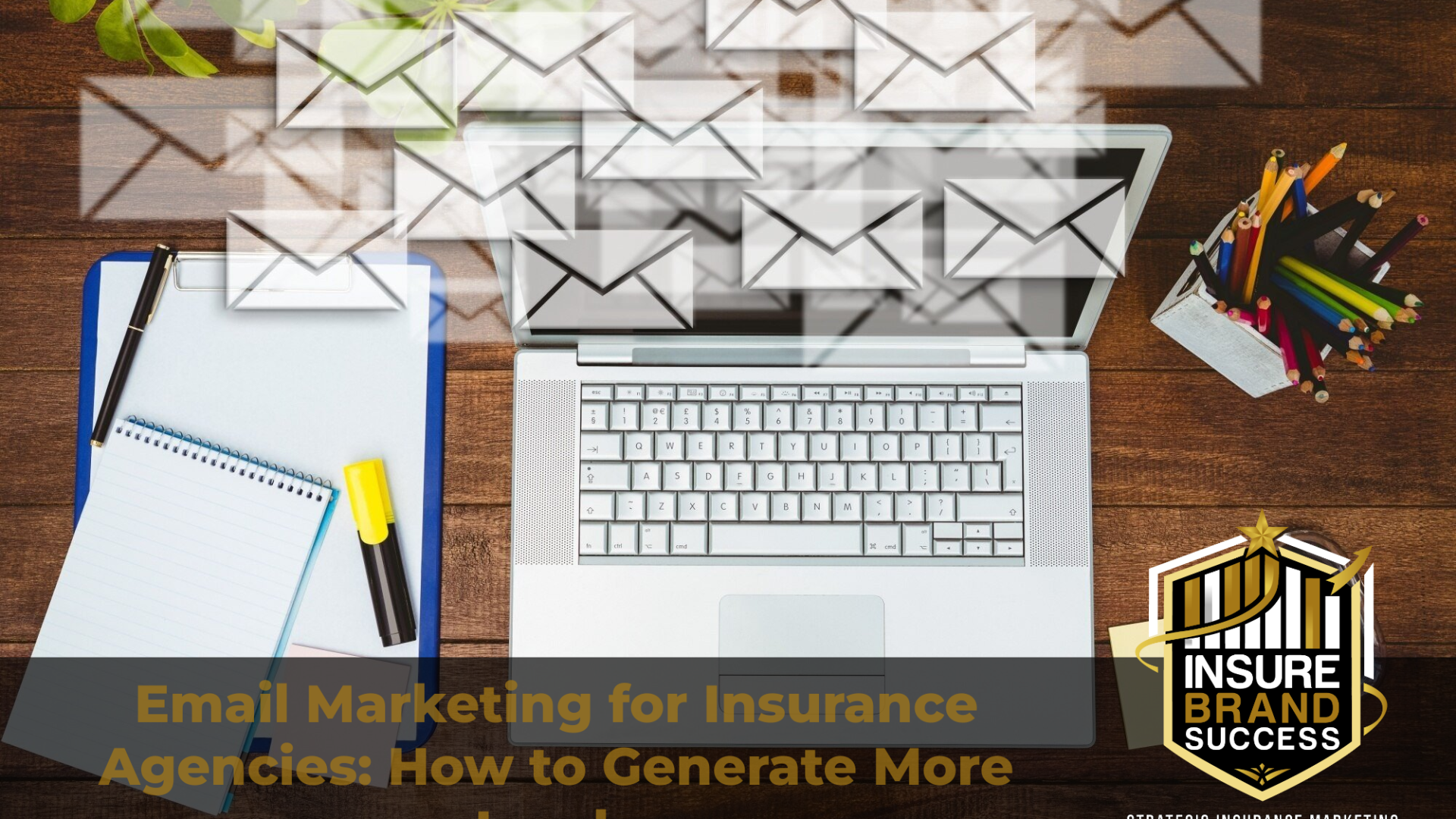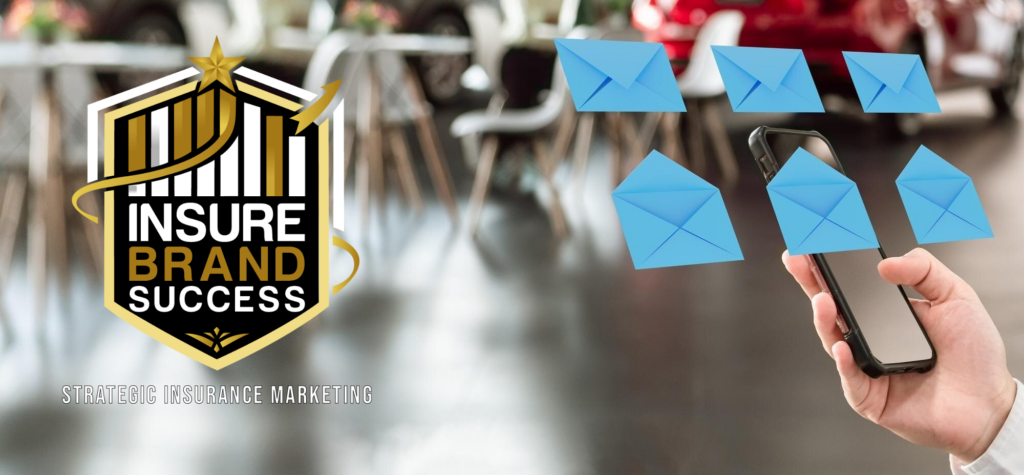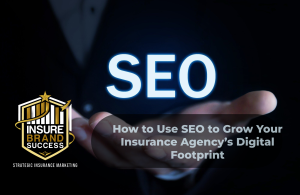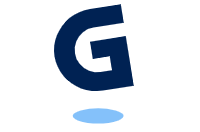In today’s competitive insurance industry, email marketing remains one of the most effective ways to generate leads and nurture client relationships. With the ability to deliver personalized messages directly to prospective clients, email marketing is an indispensable tool for insurance agencies aiming to grow their business. This guide will provide actionable strategies for using email marketing to attract more leads and improve client acquisition.
The Role of Email Marketing in Insurance Lead Generation
Email marketing offers insurance agencies a cost-effective way to engage with potential and existing clients. Whether you’re sharing valuable insights, offering personalized policy recommendations, or reminding clients about renewals, email marketing provides a direct line to your audience.
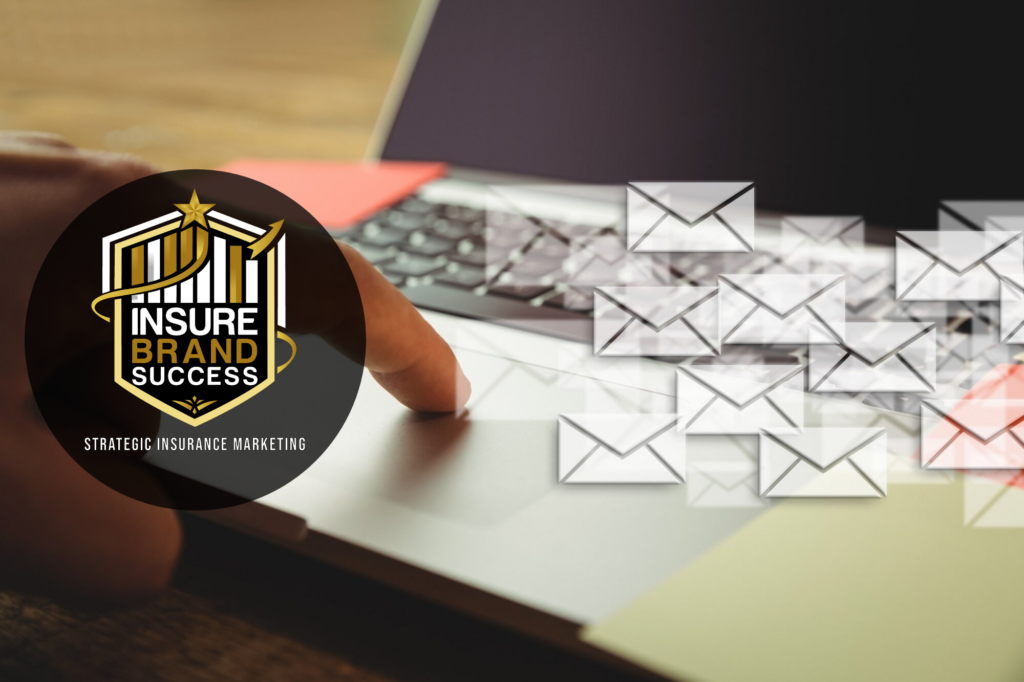
Benefits of Email Marketing for Insurance Agencies:
- High ROI: Email marketing generates $36 for every $1 spent, making it one of the most cost-effective channels.
- Personalized Outreach: Segment your audience to send tailored content that resonates with different client needs.
- Lead Nurturing: Build trust over time by providing valuable information and timely follow-ups.
Discover more about Insurance Email Marketing to see how it can drive results for your agency.
Strategies to Optimize Email Marketing for Lead Generation
To maximize the potential of email marketing, insurance agencies must focus on creating targeted campaigns that engage and convert their audience. Here’s how to do it:
1. Build a High-Quality Email List
The foundation of any successful email marketing campaign is a well-curated email list. Focus on building a database of engaged subscribers who are genuinely interested in your services.
- Use Lead Magnets: Offer free resources like e-books, insurance checklists, or webinars in exchange for contact information.
- Optimize Your Website Forms: Ensure that your website includes user-friendly forms to capture leads. Tools like pop-ups and embedded sign-up forms can boost conversions.
- Segment Your List: Categorize subscribers by demographics, interests, or policy type to send targeted messages.
Pair these efforts with Client Acquisition and Retention Programs to further grow your lead base.
2. Craft Engaging and Relevant Email Content
The content of your emails plays a critical role in capturing attention and encouraging action. Ensure that each email provides value and aligns with the needs of your audience.
- Educational Content: Share articles, guides, and videos that address common insurance questions, such as “How to Choose the Right Auto Insurance Policy.”
- Policy Updates: Keep clients informed about changes to insurance laws, benefits, or rates.
- Promotional Offers: Use time-sensitive discounts or bundled policy deals to encourage immediate action.
Align your content strategy with broader Digital Marketing for Insurance Agencies for consistent messaging.
3. Leverage Automation for Efficiency
Automation allows insurance agencies to send timely, relevant emails without manual effort. This helps streamline lead nurturing and ensures consistent communication.
- Welcome Series: Introduce new subscribers to your agency with a sequence of welcome emails.
- Drip Campaigns: Gradually educate leads about your services with a series of emails designed to build trust and encourage action.
- Renewal Reminders: Automate reminders for clients to renew their policies before expiration.
4. Optimize Subject Lines and CTAs
Your subject line and call-to-action (CTA) are the first and last things a recipient sees in your email. Optimizing these elements can significantly improve open rates and conversions.
- Subject Lines: Keep them concise and intriguing, such as “Save on Your Next Policy Renewal” or “5 Tips to Lower Your Insurance Costs.”
- CTAs: Use clear, actionable phrases like “Get a Free Quote” or “Schedule a Consultation.”
5. Monitor Metrics and Refine Your Strategy
Email marketing success hinges on data. Regularly analyze your campaign performance and use the insights to improve future efforts.
- Open Rates: Measure how many recipients open your emails to assess the effectiveness of your subject lines.
- Click-Through Rates (CTR): Track how many recipients click on links within your emails to gauge engagement.
- Conversions: Monitor the number of leads generated or policies sold as a result of your campaigns.
For more insights, visit the Small Business Administration’s marketing resources.
Advanced Email Marketing Tactics
Once you’ve mastered the basics, elevate your email marketing with these advanced strategies:
1. Personalize Emails at Scale
Personalization goes beyond addressing recipients by their first name. Use data to tailor email content based on individual preferences, behaviors, and past interactions.
- Dynamic Content: Customize sections of your email based on the recipient’s policy type or interests.
- Behavior Triggers: Send emails triggered by specific actions, such as visiting your website or requesting a quote.
2. Use A/B Testing to Optimize Campaigns
A/B testing allows you to compare different versions of an email to determine what resonates most with your audience.
- Test Subject Lines: Experiment with different tones, lengths, or offers.
- Test CTAs: Compare the performance of different call-to-action buttons or links.
3. Integrate Email with Other Marketing Channels
Email marketing is most effective when combined with other digital strategies. Create a cohesive approach by integrating email with your SEO, social media, and paid advertising campaigns.
- Follow-Up Ads: Use email data to retarget leads with display ads on platforms like Google or Facebook.
- Content Amplification: Share email-exclusive content on social media to expand its reach.
Learn more about Social Media Strategies to enhance your multichannel approach.
Overcoming Challenges in Email Marketing for Insurance Agencies
While email marketing offers immense potential, it’s not without challenges. Here’s how to address common hurdles:
- Low Open Rates: Use segmentation and compelling subject lines to improve relevance and engagement.
- Spam Filters: Avoid excessive exclamation points, all caps, and generic email addresses to ensure deliverability.
- Compliance: Ensure all campaigns comply with privacy laws, such as GDPR or CAN-SPAM regulations, as outlined by the National Association of Insurance Commissioners.
Success Stories: Email Marketing in Action
Case Study 1: Nurturing Leads with Drip Campaigns
An insurance agency implemented a drip campaign targeting small business owners. By sending a series of emails about liability coverage, they converted 30% of their leads into paying clients within three months.
Case Study 2: Retaining Clients with Personalized Renewal Reminders
A life insurance provider used automation to send personalized renewal reminders. This effort reduced churn by 20% and increased upsells for higher coverage plans.
FAQs
1. Why is email marketing effective for insurance agencies?
Email marketing is one of the most effective tools for insurance agencies because it provides a direct and personal way to communicate with potential and existing clients. Tailored email campaigns can deliver valuable information, such as policy updates, tips for reducing insurance costs, or special promotions, in a way that builds trust and encourages action. Moreover, email marketing allows you to stay connected with clients over time, fostering long-term relationships and brand loyalty.
2. How often should I send emails?
Finding the right email frequency is key to maintaining engagement without overwhelming your audience. For most insurance agencies, a weekly or bi-weekly schedule works well. For example:
- Weekly emails: Share industry news, tips, or educational content.
- Monthly newsletters: Summarize updates, new offerings, and client success stories. Avoid sending emails too frequently, as this may lead to unsubscribes or fatigue. Segmenting your audience can also help you tailor the frequency to different client groups based on their preferences and needs.
3. How can I grow my email list?
Growing an email list organically ensures you’re reaching a relevant audience. Strategies include:
- Lead Magnets: Offer value in exchange for email sign-ups, such as free e-books, insurance checklists, or cost-saving guides.
- Optimized Website Forms: Place sign-up forms prominently on your website, including on the homepage, blog posts, and landing pages.
- Encourage Referrals: Incentivize existing clients to share your emails or refer others to sign up for your newsletter. Social media and in-person networking events can also be effective for expanding your reach.
4. What tools can help with email marketing?
Email marketing platforms simplify the process of creating, managing, and analyzing campaigns. Popular options include:
- Mailchimp: User-friendly with automation and analytics features.
- Constant Contact: Excellent for event-based emails and list segmentation.
- HubSpot: Ideal for agencies seeking an all-in-one CRM and marketing solution. These tools allow you to design professional emails, automate delivery, and track performance metrics with ease.
5. Can email marketing help with client retention?
Absolutely. Regular communication through email strengthens relationships and keeps your agency top-of-mind for existing clients. Examples of retention-focused email content include:
- Policy Renewal Reminders: Notify clients when it’s time to renew their policies.
- Personalized Offers: Send tailored recommendations for additional services, such as bundling auto and home insurance.
- Educational Content: Share tips on coverage options or how to file claims efficiently. By providing consistent value, you enhance client satisfaction and loyalty.
6. How do I measure email marketing success?
Measuring the success of your email marketing efforts involves tracking key performance metrics:
- Open Rates: The percentage of recipients who open your emails. High open rates indicate compelling subject lines and relevance.
- Click-Through Rates (CTR): Measures how many recipients click on links within your emails, indicating engagement with your content.
- Conversion Rates: Tracks how many recipients complete a desired action, such as requesting a quote or scheduling a consultation. Using these metrics, along with data from tools like Google Analytics or your email platform, helps you refine your campaigns for better results.
Why Email Marketing Matters for Insurance Agencies
Email marketing is an indispensable part of a comprehensive digital strategy for insurance agencies. It provides a cost-effective way to generate leads, nurture relationships, and retain clients over time. Whether you’re just starting or looking to optimize your current campaigns, leveraging tools and strategies effectively can lead to measurable growth.
Ready to take your email marketing to the next level? Contact Insure Brand Success for tailored solutions that drive engagement and deliver results. For further insights, explore resources like Mailchimp’s Email Marketing Guide or HubSpot’s Marketing Blog.
Your journey to successful email marketing begins today!
